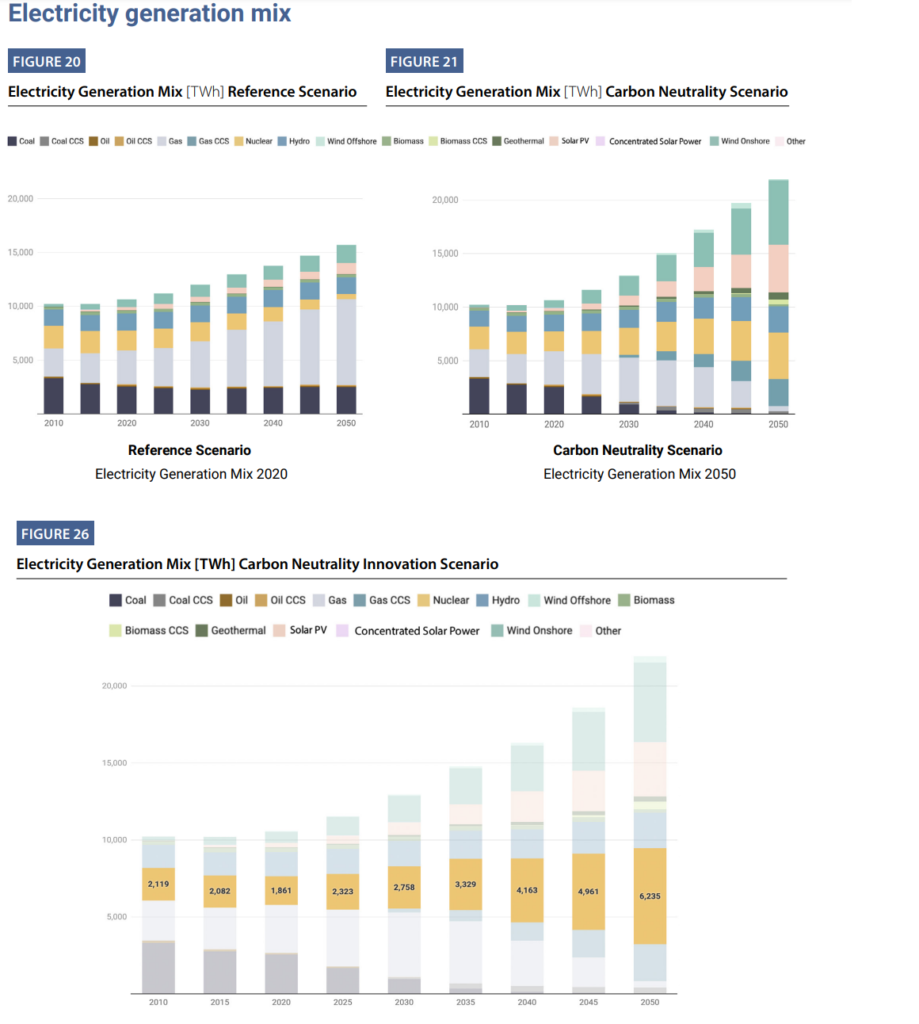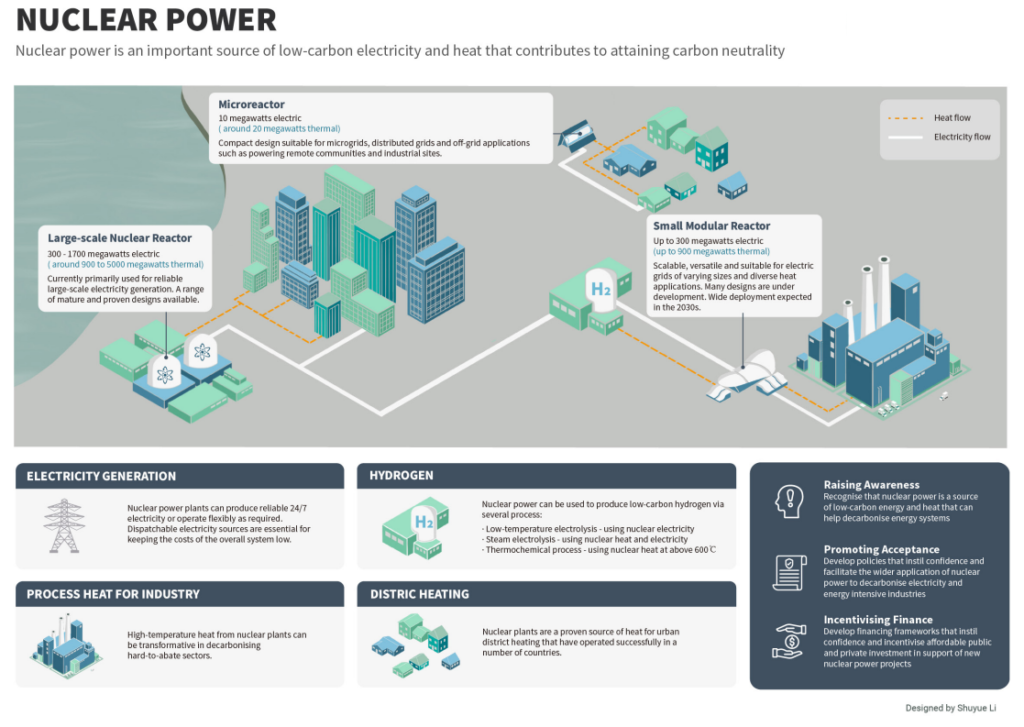UNECE: Nuclear Plays A Crucial Role In Making Net Zero Still Achievable
The last UNECE Carbon Neutrality in the UNECE Region: Technology Interplay under the Carbon Neutrality Concept states that carbon neutrality is still achievable despite the energy crisis, but all low- and zero-carbon technologies must be included and deployed, maximizing their use.
Today, over 80% of the primary energy mix in the UNECE region is fossil fuel based. Climate models indicate that current national actions and international climate targets set in the Paris Agreement and COP26 fall short of delivering carbon neutrality and limiting global warming to 1.5 – 2 °C.
The UNECE report shows three scenarios:
- a Reference Scenario, based on historical trends and current policies, which presumes no sustainable energy or effective climate policies and accordingly fails to achieve carbon neutrality;
- a Carbon Neutrality Scenario, that reaches net-zero carbon emissions by 2050 and aims to limit temperature rises to less than 1.5°C by 2100. Fossil fuel-based supply options become economically less attractive and are heavily replaced by renewables and nuclear power.
- a Carbon Neutrality Innovation Scenario, which focuses on the potential benefits of innovation and deployment policies that accelerate the market uptake of innovative technologies. For nuclear power it includes large-scale reactor designs, new small modular reactors (SMRs), and multiple applications beyond electricity, such as hydrogen production.

The three scenarios elaborated by UNECE. Image – UNECE
Regarding nuclear energy, UNECE clearly says that
Nuclear power is an essential low-carbon electricity and heat source contributing to carbon neutrality.
Along with current proven commercialized reactor designs, many new nuclear reactor technologies are being developed, which may open new markets, such as better load management, high-temperature heat for industrial processes, combined heat and power production, and electrolysis for hydrogen production. Countries that decide to deploy nuclear power can play an essential role in decarbonizing the UNECE energy systems.

“Nuclear power is an essential low-carbon electricity and heat source contributing to carbon neutrality” – Image UNECE
To attain carbon neutrality, UNECE Report finally highlights the need to:
- Diversify primary and final energy supply with all low- and zero-carbon technologies
- Accelerate phase-out of unabated fossil fuels
- Scale-up electrification of all sectors with emphasis on renewable energy and nuclear power. New forms of energy storage (electric, mechanical, thermal, chemical) will need to be developed to decrease the need for fossil energy backups.
- Build capacity to support widespread innovation of low- and zero-carbon technologies such as carbon capture, use and storage (CCUS), hydrogen and advanced nuclear power.
Read the full UNECE Report here




